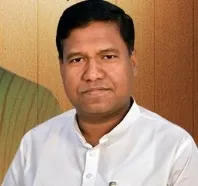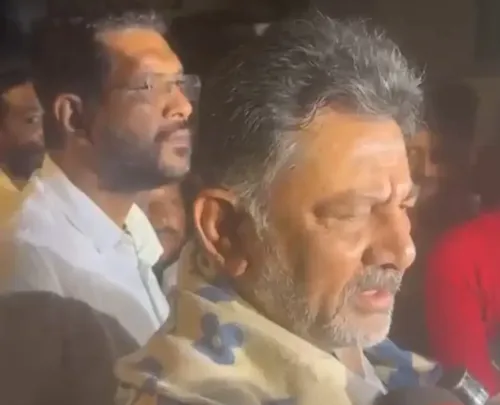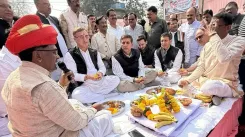Have Principles Been Sacrificed for Power? HAM Critiques Lalu Prasad Yadav Over Emergency Silence

Synopsis
Key Takeaways
- Santosh Suman condemns Lalu Prasad Yadav for political opportunism.
- Emphasizes the legacy of the J.P. Movement.
- Questions the integrity of leaders aligned with oppressive forces.
- Calls for public reflection before upcoming elections.
- Marks the significance of the Emergency's anniversary.
Patna, June 26 (NationPress) The National President of Hindustani Awam Morcha (HAM) and Bihar’s Minor Water Resources Minister, Santosh Suman, has publicly condemned RJD chief Lalu Prasad Yadav on Thursday, accusing him of having “forsaken” the core principles of the J.P. Movement for “political advantage.”
While commemorating the 50th anniversary of the Emergency, Suman reflected on the significant Bihar movement led by Jayaprakash Narayan (JP) against the Emergency, corruption, misrule, and inflation during the Congress regime.
He emphasized that Lalu Prasad Yadav rose as a leading student figure from this movement, which ultimately led to the imposition of an Emergency by then Prime Minister Indira Gandhi to suppress opposition.
“Once a revolutionary son of JP who opposed the Emergency, Lalu Prasad now maintains silence, refraining from condemning this grim period in Indian democracy. Why? Out of fear of displeasing his coalition ally, the Congress,” Suman charged.
Suman accused Lalu Prasad Yadav of betraying the legacy of the JP movement for his own political survival.
“To safeguard his position, Lalu Prasad Yadav has not only forsaken the ideals of JP but has effectively buried them. The same leader who once championed justice is now collaborating with the very forces he opposed,” he stated.
Suman noted that Lalu Prasad Yadav, who faced imprisonment under the MISA Act during the Emergency, even named his eldest daughter 'Misa' to honor that struggle.
“Yet today, in pursuit of power, he seems to have forgotten those torturous days. The entire RJD family avoids even mentioning the term ‘Emergency.’ What political compulsions are at play here?” he questioned.
Suman also urged the public, saying, “Can Bihar genuinely place its trust in a leader who shifts allegiance for political gain and compromises principles for power? This is a question every voter should contemplate before the upcoming elections.”
These remarks come amidst a wider political discussion as NDA leaders observed June 25 as 'Black Day,' marking the declaration of Emergency in 1975 and critiquing the Congress party’s legacy.









